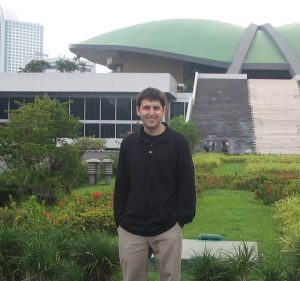Memo #86
By Nathan Allen – nallen [at] interchange.ubc.ca
 With the old autocracies of the Middle East falling and new regimes yet to emerge, policy makers are grasping for models that can inform analysis. U.S. President Obama has proposed the ‘Indonesian model.’ The logic is straightforward: Indonesia is a majority Muslim country that has transitioned from a military dominated autocracy to a democracy.
With the old autocracies of the Middle East falling and new regimes yet to emerge, policy makers are grasping for models that can inform analysis. U.S. President Obama has proposed the ‘Indonesian model.’ The logic is straightforward: Indonesia is a majority Muslim country that has transitioned from a military dominated autocracy to a democracy.
The allure of the Indonesian model lies in the interplay of Islam and democracy. Particular attention has focused on how Islamists – those claiming policy positions inspired by Islamic law – will act in the era of open democratic elections.
So what can we learn about Islamism and electoral politics from Indonesia?
- Islamists are not necessarily politically united. Islamists in Indonesia struggle to coordinate their activities and fundamental disagreements divide them. Furthermore, Islamists and moderate supporters of political Islam organize in distinct parties. Analysts often fear that democracy will lead to religious polarization, but unity among the devout cannot be assumed.
- Nationalism is a powerful force. In Indonesia, Islamists must compete with nationalist parties. Nationalism is a strong message and today’s secular nationalist parties do well even among religiously devout voters.
- Many Islamist politicians prioritize office seeking. While Islamist politicians sometimes talk of sweeping societal changes, the fiery Islamist candidates of today are often the soporific legislators of tomorrow. For instance, Hamzah Haz played a major role in organizing opposition to Megawati Sukarnoputri in 1999 under the pretence that it would be morally inappropriate for a woman to serve as president. Two years later, when Megawati assumed the presidency, Haz served as her vice president. Islamist rhetoric is occasionally divisive, but tough moral postures can turn out to be surprisingly flexible when political office and status are at stake.
Worst case scenarios of democracy in a Muslim context predict a destabilizing competition between Islamists and their opponents. In this pessimistic view, either an Islamist movement attains power and curbs democratic rights, or a secular force seizes power to prevent Islamist rule.
But optimistic scenarios that allow the diversity of the Islamist community to be reflected in the political sphere may reduce the possibility of polarization. There may be increased opportunity to detach Islamist radicals from those who have more worldly motivations. Indonesia is far from perfect, but the Middle East could do a lot worse than the ‘Indonesian model.’
About the Author:
Nathan Allen – a PhD student in the Department of Political Science at The University of British Columbia. Writing his dissertation on the development of the Indonesian party system.
Links:
- Political Islam and Islamic Parties in Indonesia: Critically Assessing the Evidence of Islam’s Political Decline, Contemporary Southeast Asia: A Journal of International and Strategic Affairs, April 2010
- Muslim Indonesia’s Secular Democracy, Asian Survey, Volume 49, No. 4, July/August 2009
- Obama suggests Indonesia, Chile as models for Egypt, Politico, March 2011
- Indonesia, not Iran, holds lessons for Egypt, CNN, February 2011
- In Indonesia, a Model for Egypt’s Transition, Wall Street Journal, February 2011
- Lessons from a whirlwind, Asia Times Online, February 2011
Related Memos:
- Our other Memos about Indonesia and Southeast Asia